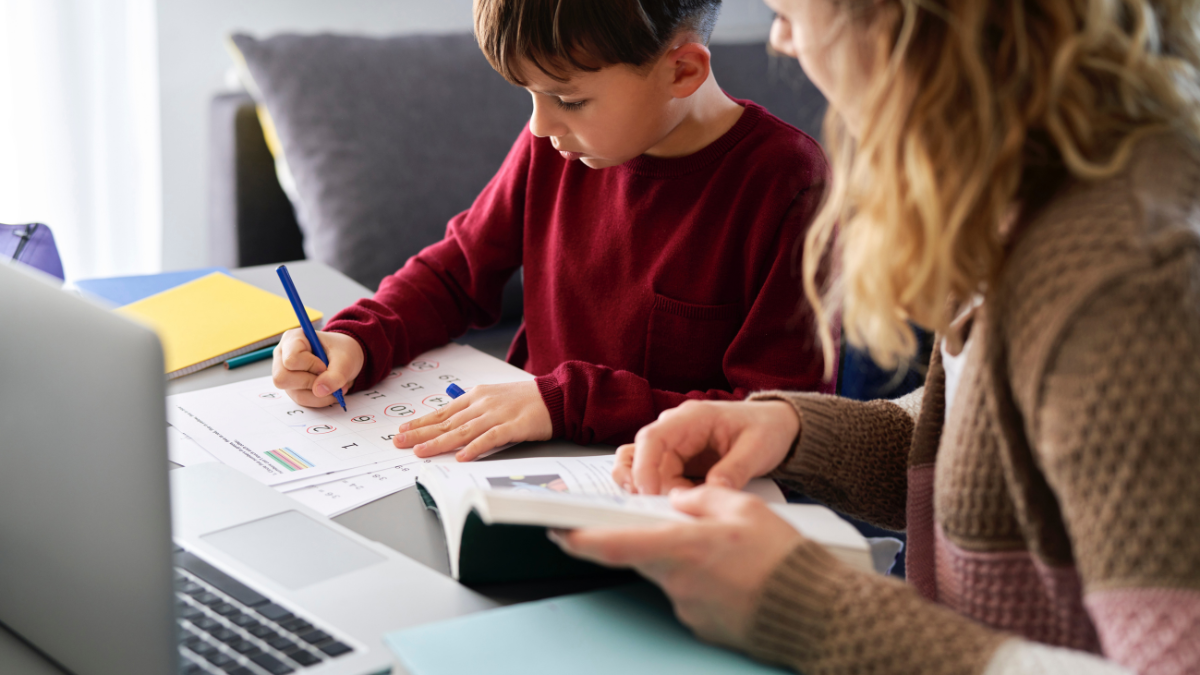

Parents are the Single Best Antidote to Covid “Learning Loss”
The differences between a state-centric plan to educate the next generation versus a family/church-centric plan are clear and devastating.
12/20/23
John Stonestreet

Nearly a year after COVID shutdowns began in the United States, the ABC affiliate in San Francisco ran this headline: “Private schools opening in-person where public schools aren’t.” In February 2021, while the majority of private schools in California were back in-person, most public schools were still “distance learning.”
Around the same time, the public health department in Toledo, Ohio, had ordered all schools back to distance learning for the winter. Local gyms, offices, and casinos were allowed to stay open. In response, a small private Christian school sued. The 6th Circuit decided in their favor, and the school stayed open while every public school in the area remained closed.
Stories like this repeated all over the country from the fall of 2020 through the end of the pandemic. Public schools, under the direction of teachers’ unions and, at times, overzealous public officials, stayed closed for weeks, months, and, in some cases, years longer than private schools. Now, the results are in from these experiments, and the data show a devastating effect on kids.
Last month, The New York Times editorial board wrote that “The Startling Evidence on Learning Loss Is In.” According to the piece, school closures set math and reading scores among 9-year-old students back by at least 20 years. “The challenges have been compounded by an epidemic of absenteeism,” the editors wrote, “as students who grew accustomed to missing school during the pandemic continue to do so after the resumption of in-person classes.” Tragically, too many public officials were taken in by the narrative that to contract COVID, even for kids at low risk for serious infection, was more dangerous than two decades’ worth of learning loss. Unfortunately, kids are now paying the price. And as this generation of kids gets older, society will pay the price, too.
The fact that so-called “distance learning” was mostly “no learning” says a lot about the kind of creatures human beings are. Kids, like all humans, are embodied beings, which makes being physically together with others a categorically different thing than only seeing faces on a screen.
God made us for relationships. As helpful as computers and phones are, they are not substitutes for real people. In short, technology can enhance learning, but even the most sophisticated technologies should not shape learning.
The data on COVID-era learning loss reveals something else about children. The terrible numbers were not nearly as terrible for kids with heavily engaged parents. This played out in multiple ways. In the cases of schools that reopened much earlier than others, it was often parents pushing local officials. For kids forced into prolonged distance learning, those with parents who made sure they showed up to Zoom class and helped with homework did best overall.
Of course, the importance of parental engagement in education was another condition that pre-existed COVID. Still, data from before, during, and after the pandemic show that parents are the single most important factor in the education of a child and a healthy home the most important ingredient for a successful life. This is a remarkable opportunity for Christians. The Church has always cared about kids, and the Church has always cared about education. The state-centric way of trying to prepare a new generation of citizens is not fulfilling its promise. Thankfully, there are many Christians dedicated to serving kids as best they can in and out of public schools. Others are innovating new ways to do school, including starting Christian schools inside church buildings in struggling communities. Others are advocating for school choice so that every family can afford to send their kids to schools that will serve them best. And others are working to provide resources and opportunities for those kids who remain within the public system.
This is why the Colson Center has doubled down on our investment in Christians who are called to the realm of education. To this end, we have developed resources to form teachers in a Christian worldview and help them apply it to their work. Find out more and access the free training resources at educators.colsoncenter.org.
To support this work and resource more educators with a Christian worldview, give at colsoncenter.org/december.
For more resources to live like a Christian in this cultural moment, go to breakpoint.org.
Have a Follow-up Question?
Up
Next

Related Content

© Copyright 2020, All Rights Reserved.













